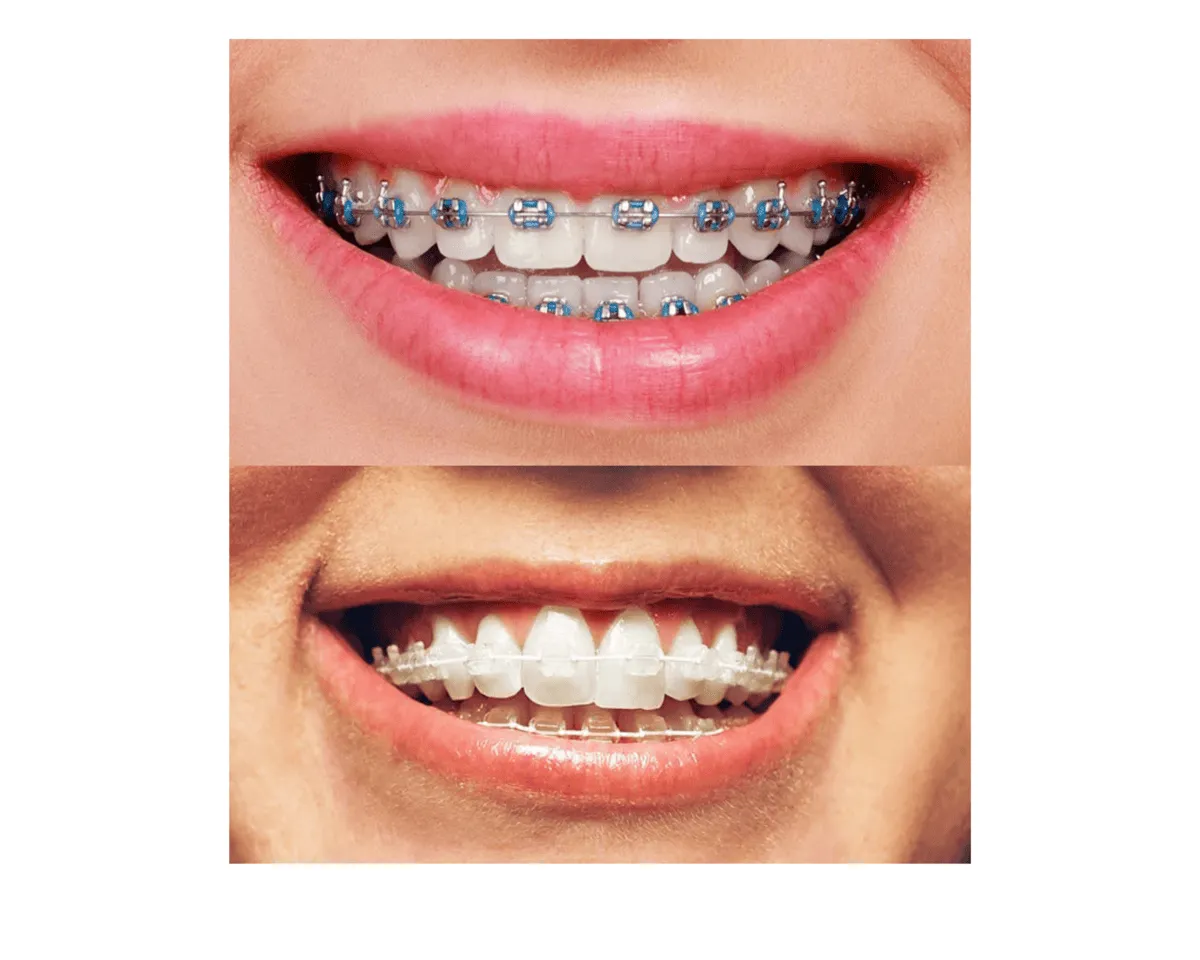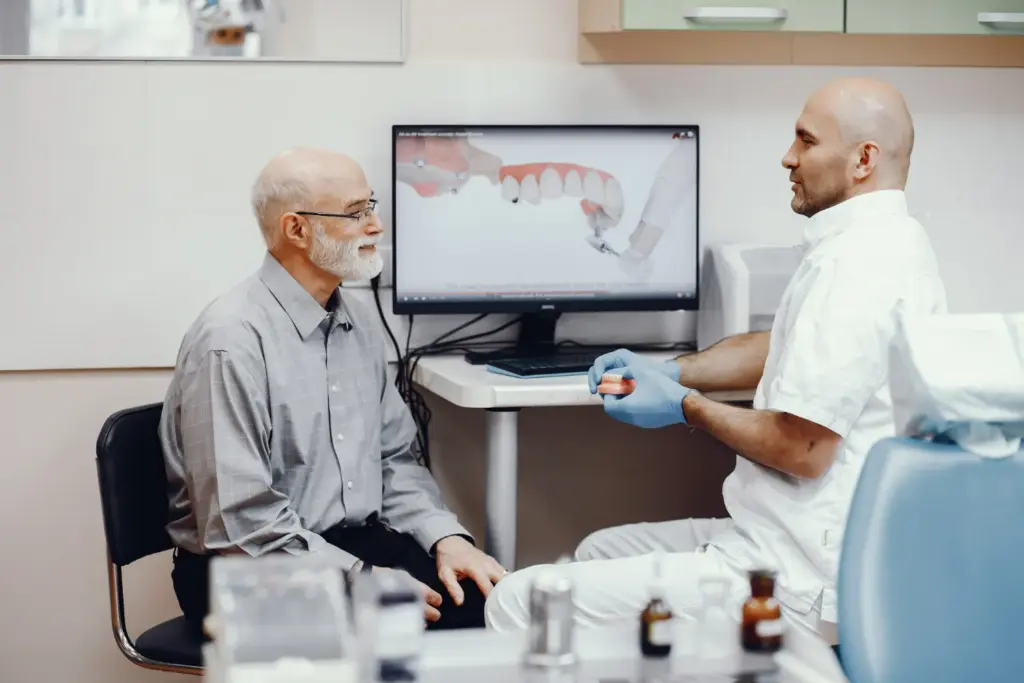
Replacing missing teeth can restore more than a smile; it improves chewing, speech, facial structure, and overall quality of life. Understanding the various denture options available is essential when considering the most suitable choice for your oral health needs. Whether you’re exploring dentures for the first time or replacing an older set, knowing what’s out there can help you make an informed decision.
Understanding the Main Denture Options
Denture options are broadly categorised into complete and partial types. These can be further broken down by design, functionality, and the materials used.
Complete Dentures: When All Teeth Are Missing
Complete dentures are used when a person has lost all their teeth in either the upper or lower arch, or both. These sit directly on the gums and rely on suction or dental adhesives for support.
- Upper Dentures: Cover the palate (roof of the mouth) and offer strong suction.
- Lower Dentures: U-shaped and sit over the gums; typically less stable than upper dentures due to tongue movement.
Immediate dentures are a subset of complete dentures that are placed on the same day as tooth extraction, allowing the patient to leave the clinic with teeth. While convenient, they may need adjustments as the gums heal and shrink.
Partial Dentures: When Some Natural Teeth Remain
Partial dentures are ideal for patients who still have healthy teeth. These dentures anchor onto the existing teeth using metal clasps or precision attachments, helping to maintain dental alignment and prevent the remaining teeth from shifting.
Types of partial dentures include:
- Cast Metal Partial Dentures: Highly durable and offer a snug fit.
- Flexible Partial Dentures: Made from pliable materials like nylon, offering improved comfort and aesthetics.
- Acrylic Partial Dentures: A budget-friendly option, but less durable.
Modern Innovations in Denture Design
Thanks to technological advancements, denture options have become more varied, functional, and aesthetic than ever before.
Snap-In or Implant-Supported Dentures
Snap-in dentures use dental implants for retention and are ideal for those seeking better stability. They’re removable but click securely onto implant posts fixed in the jawbone.
Benefits include:
- Greater stability while speaking and chewing
- Reduced bone loss compared to traditional dentures
- A more natural appearance and feel
Overdentures
Overdentures fit over a few remaining natural teeth or dental implants. Preserving even a few teeth helps maintain jawbone density and denture stability.
They can be supported by:
- Tooth-retained implants: Where healthy teeth are used as anchors
- Implant-retained supports: Where dental implants provide the base for attachment
Custom vs. Economy Dentures
Choosing between custom and economy dentures usually comes down to budget, comfort, and aesthetics.
- Economy Dentures: Often mass-produced using basic materials. Less natural-looking and may require adhesive.
- Custom Dentures: Made to match the patient’s facial structure, skin tone, and oral measurements, resulting in a better fit and realistic appearance.
At Birchgrove Dental, the emphasis is on providing denture solutions that prioritise comfort, functionality, and aesthetics.
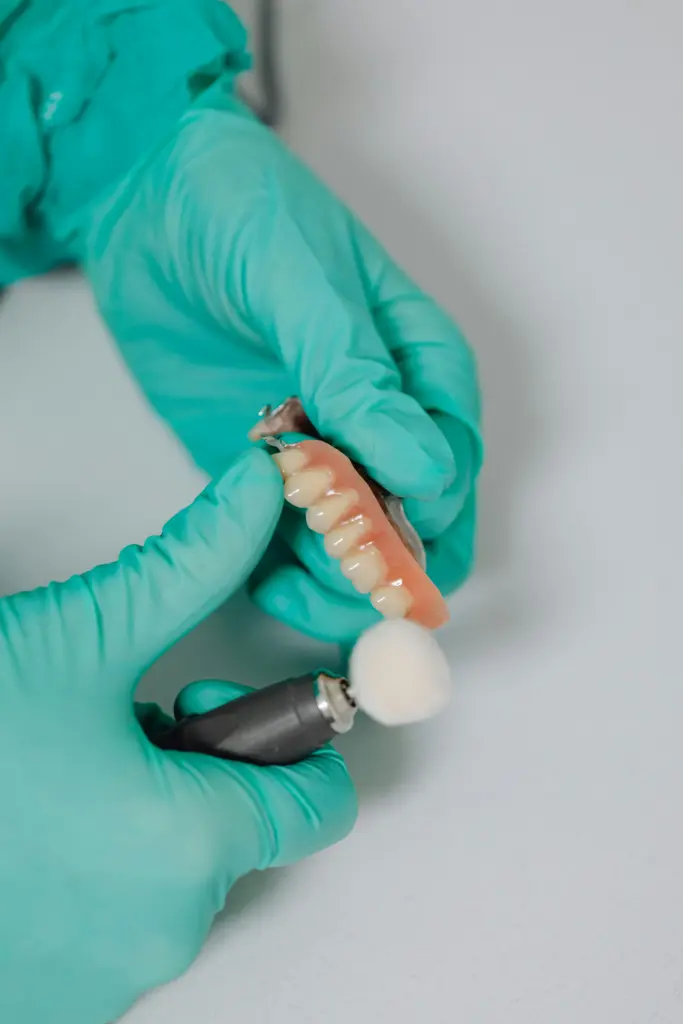
Denture Materials: What Are They Made From?
The material used in your denture affects not only appearance but also how it feels and lasts.
Acrylic Resin
One of the most commonly used materials for full dentures is due to affordability and ease of adjustment.
- Lightweight and cost-effective
- Easier to modify over time
- Wears down quicker and may require replacement every 5–8 years
Porcelain
Favoured for its natural appearance and durability, though heavier and more brittle than acrylic.
- Mimics natural tooth translucency
- Stronger chewing surface
- Heavier on the gums and more prone to chipping
Metal Framework (Cobalt-Chrome)
Used primarily in partial dentures, offering strength with minimal bulk.
- Very strong and thin, making it more comfortable
- Typically used in cast metal partial dentures
- May require a longer adjustment period
Flexible Nylon
An option for partials, nylon-based dentures are bendable and often more comfortable.
- No metal clasps, which improves aesthetics
- Comfortable and lightweight
- May not be suitable for all mouth types
How NHS and Private Dentures Compare
In the UK, dentures are available through both NHS and private dental care. The choice often comes down to budget and personal preference.
- NHS Dentures: Functional and affordable, but may offer limited material and design options. Patients typically receive acrylic or metal dentures without extensive customisation.
- Private Dentures: Offer broader material and aesthetic choices. Fit and comfort are typically prioritised, with more time spent on personalising the denture design.
According to the NHS, denture care is essential regardless of type, and regular check-ups ensure continued comfort and performance.
Technological Advancements in Denture Fabrication
Modern technology has significantly improved the way dentures are made and fitted.
Digital Impressions
These replace traditional moulds, offering greater accuracy and a faster turnaround for fabrication.
3D Printing
3D printing is now being used to manufacture highly precise and customised dentures with fewer appointments needed.
CAD/CAM Technology
Computer-Aided Design and Manufacturing allow for enhanced denture fit and a more natural appearance, especially with custom dentures.
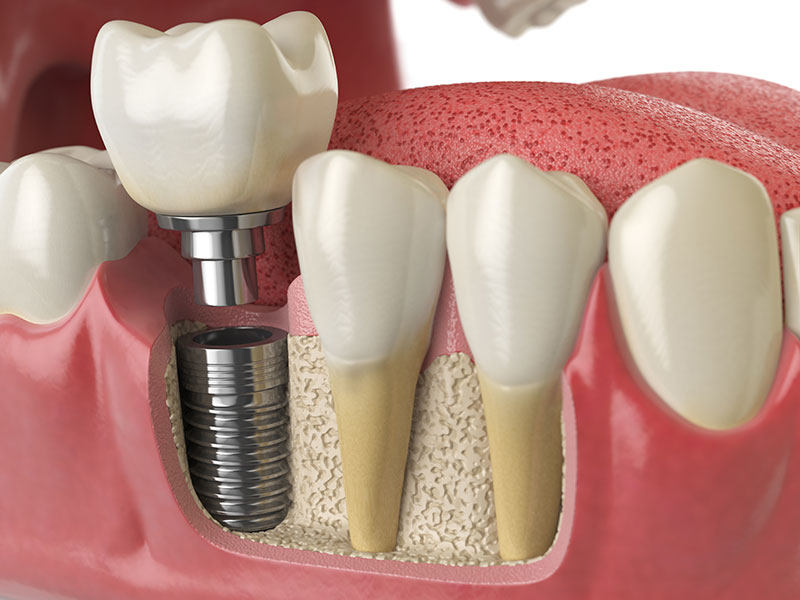
Are Dental Implants a Better Alternative?
While dentures are suitable for many, dental implants offer a more permanent solution.
- Provide stimulation to the jawbone, preventing bone loss
- Offer stability that rivals natural teeth
- Do not require removal for cleaning
However, not everyone is a candidate. Factors such as bone density, medical history, and cost play a significant role. According to Healthline, dental implants have a success rate of over 95% and can last a lifetime with proper care.
Factors to Consider When Choosing Denture Options
Each person’s dental health and lifestyle needs are different. When evaluating denture options, consider the following:
- Budget: NHS vs private, economy vs custom
- Stability needs: Whether you require extra support through implants
- Comfort: Material type and design can affect daily wear
- Aesthetics: How important is a natural look for your confidence
- Functionality: Eating and speaking with ease
Denture Maintenance and Aftercare
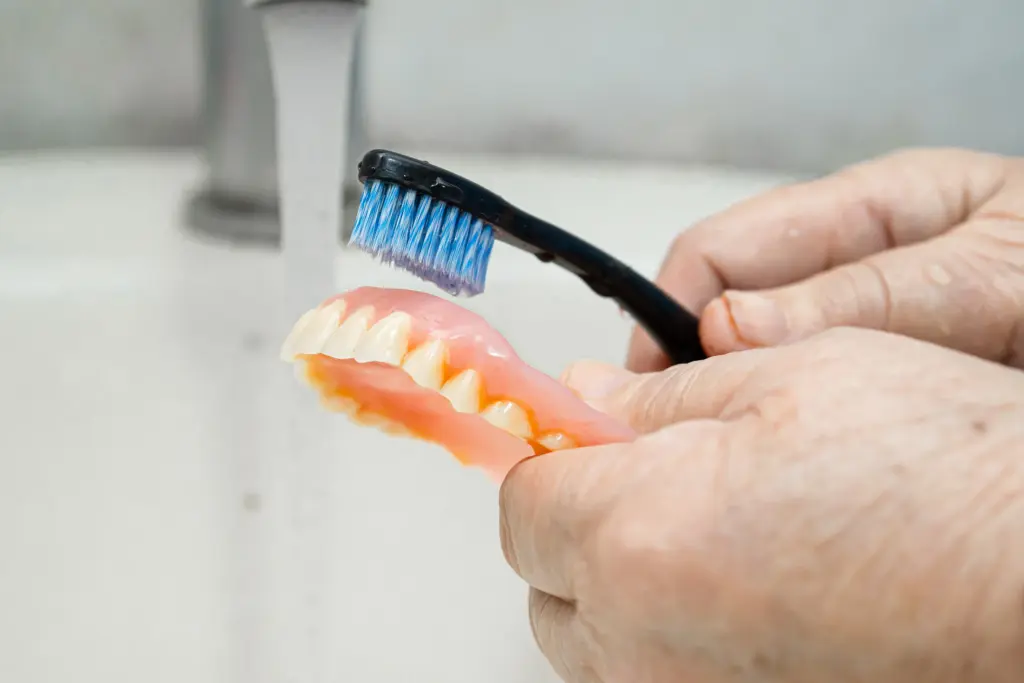
Regardless of the type of denture, proper maintenance is crucial to longevity and oral health.
Best practices include:
- Brushing dentures daily with a non-abrasive cleaner
- Soaking them overnight in a cleansing solution
- Avoiding hot water, which can warp denture material
- Scheduling regular dental check-ups for adjustments
The oral tissues also need rest. Removing dentures at night helps prevent gum irritation and infections.
Final Thoughts: Finding the Right Fit for You
Choosing the right denture solution is not just about replacing teeth—it’s about restoring comfort, confidence, and function. Denture options today are more diverse and accessible than ever, from traditional full sets to modern implant-supported designs.
At Birchgrove Dental, we work with patients to understand their lifestyle, expectations, and oral health history, ensuring each denture is tailored to meet their specific needs. Whether you’re exploring flexible partials or considering implant-supported solutions, we can help guide you through your options with clarity and care. If you’re considering dentures, book a consultation to learn how today’s denture options can give you the comfort, fit, and smile you deserve.


